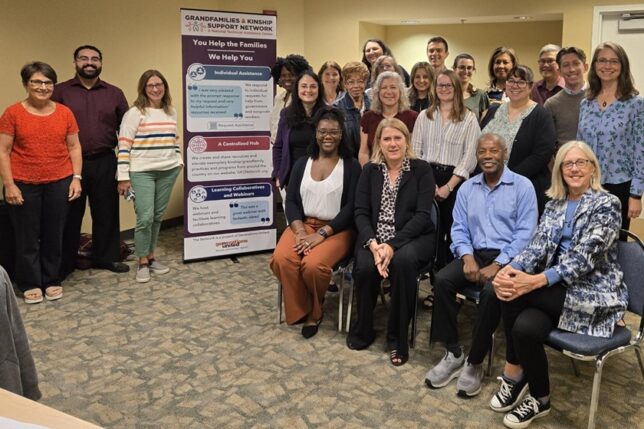The Grandfamilies & Kinship Support Network (Network) is the only national technical assistance center for those who serve grandfamilies and kinship families. The Network exists, free of charge, to help government agencies and community and faith-based organizations in states, Tribes, and territories collaborate and work across jurisdictional and systemic boundaries—all to improve supports and services for grandfamilies and kinship families.
To learn about our work and its impact since we began, see this brochure and our milestones.
How the Network Operates
With funding from a cooperative agreement with the U.S. Department of Health and Human Services’ Administration for Community Living (ACL), Generations United operates the Network with four managing partners: the National Indian Child Welfare Association, NCBA, USAging, and ZERO TO THREE. A fifth partner, Child Trends, evaluates our work. Meet our Partners.
The nation’s leading experts on kinship/grandfamilies, including those who bring the fundamental expertise of being a grandfamily member, are working together with our partners to improve services and supports for families. Meet our Subject Matter Experts.
Who the Network Supports
The Grandfamilies & Kinship Support Network is working to create lasting change for families around the country by connecting and supporting:
- Policy and program staff at government agencies in states, tribes, and territories within aging/elder/senior services, child welfare, disability, education, housing, nutrition, Medicaid and Medicare, and Temporary Assistance for Needy Families (TANF);
- Kinship navigators; and
- Staff of nonprofit, community-based, and faith-based organizations focused on supporting kinship/grandfamilies.
Join Us
Sign up to access all of the Network’s supports, including interactive learning opportunities, a monthly newsletter, and other resources. You will learn from others, share your knowledge, and help create seamless kinship supports in your community – all free of charge.
Who the Network Impacts
While the Network is not designed to help individual kinship/grandfamilies with their specific cases, they are at the core of our work, guiding and informing it. By targeting those organizations and providers that directly serve the families, the Network can help guide systemic reforms to better support kinship/grandfamilies now and into the future.
What the Network Can Do For You
You can learn from a nationwide network of your peers and access seamless support and resources from renowned experts with a wide range of subject matter knowledge—doctors, lawyers, caregivers, social workers, and policy and program experts across an array of fields. Together, they will holistically address the needs of kinship/grandfamilies and help improve all the key supports impacting them.
Network participants’ knowledge-sharing is documented and disseminated to increase everyone’s collective capacity to serve. Participants have the opportunity to access:
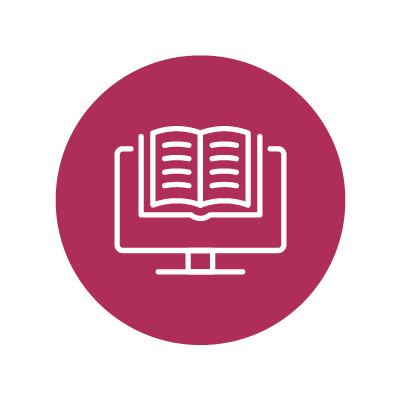
Resource Library
Our website’s Resource Library serves as a hub for knowledge-sharing amongst professionals who work with kinship/ grandfamilies. Resources like toolkits, fact sheets, sample policies, and more are available. Check back regularly to discover newly added content.
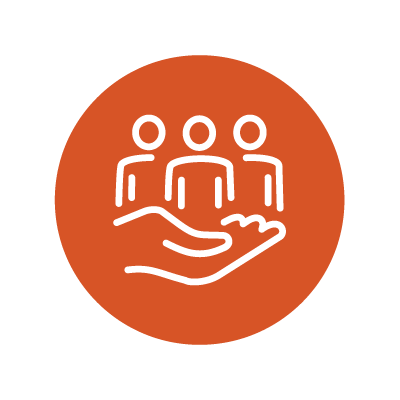
Individual Assistance
If you have a question about practices, policies, programs, or something else related to serving kinship/grandfamilies, you may use the request assistance button to submit an assistance request and someone from our technical assistance team will contact you to no-cost help. View some recent technical assistance requests.

Webinars and Learning Communities
The Network hosts webinars led by our staff, partners, and subject matter experts, focused on topics that help system leaders and direct service professionals increase their expertise and enhance their services to kinship/grandfamilies.
We facilitate ongoing peer learning by offering system leaders and professionals the opportunity to participate in virtual learning communities. Participants can share challenges and problem solve by hearing about practices from others doing similar work.
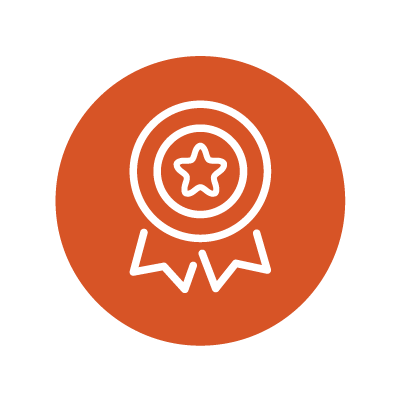
Elevating Exemplary Practices & Programs and Promoting Replication
The Network is designating kinship/grandfamilies practices that are being used with success around the country as “exemplary.” The application period is closed and, as of winter 2025-2026, Network staff have begun notifying designees. This opportunity is in addition to the 15 Exemplary Kinship Programs we have designated and are highlighting through written resources and a recorded webinar.
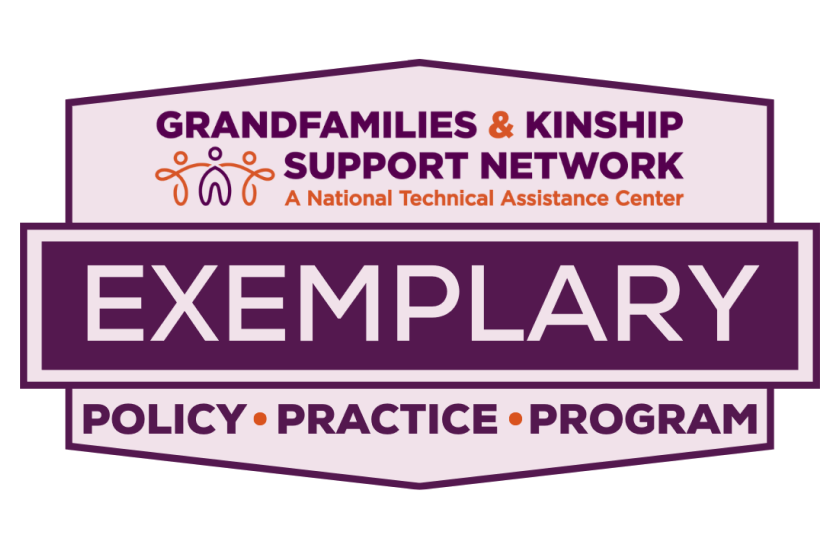
Bridging Systems for Kinship Families
For three jurisdictions that are ready for a larger investment of effort, the Network is helping optimize collaborative approaches to improve services across multiple systems. Solutions will be replicable for others across the country. The application periods for these three opportunities are closed, and work is underway in Idaho, Oneida Nation of Wisconsin, and San Diego County, California.
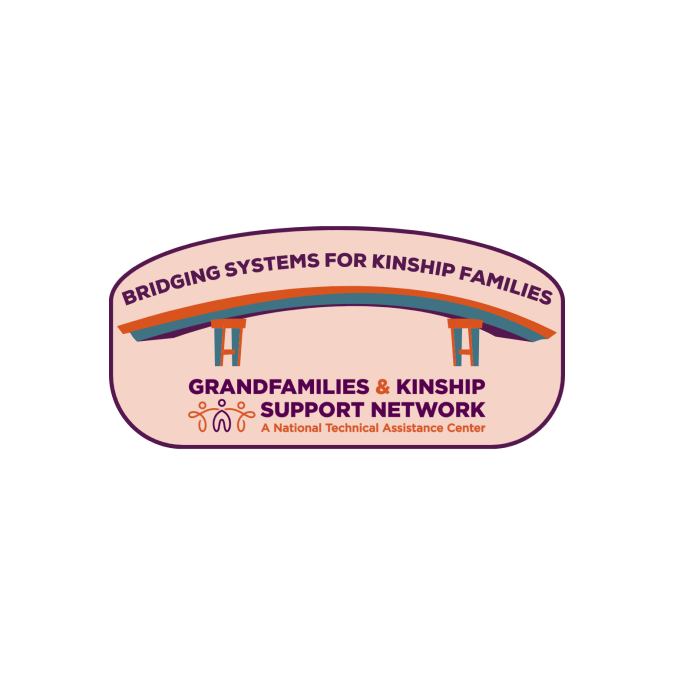
Access a downloadable postcard that describes the Network.
To learn about our work and its impact since we began, see this brochure and our milestones.
We also have separate pieces with First Year Feats Second Year Successes and Third Year Accomplishments.
If you have a question about research, practices, policies, or something else related to serving kinship/grandfamilies, you may request assistance and someone from our team will contact you to help.
The Grandfamilies & Kinship Support Network is supported by the Administration for Community Living (ACL), U.S. Department of Health and Human Services (HHS) as part of a financial assistance award totaling $9,950,000 with 95 percentage funded by ACL/HHS and $523,684 and 5 percentage funded by non-government sources. The contents are those of the authors and do not necessarily represent the official views of, nor an endorsement, by ACL/HHS, or the U.S. Government.
